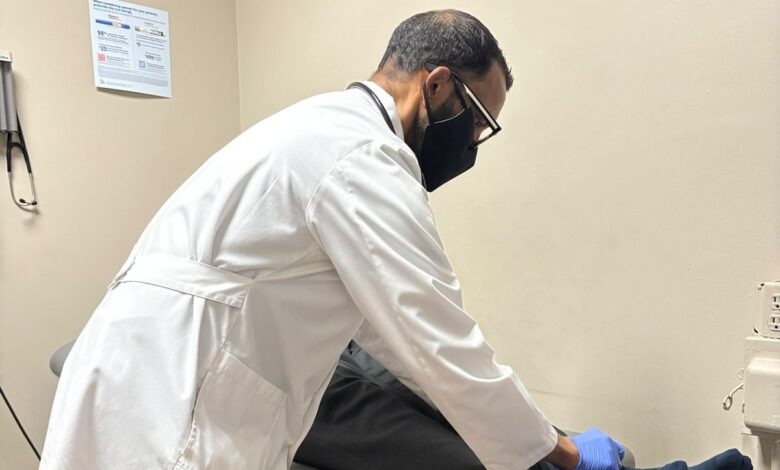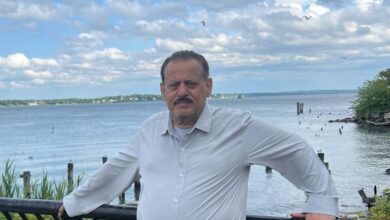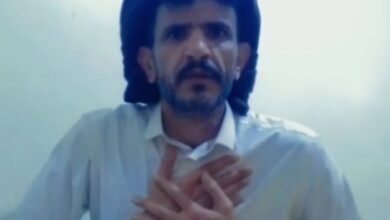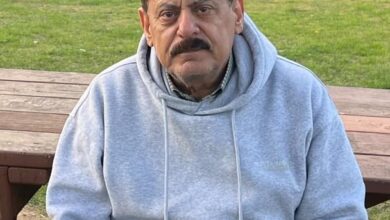From the Heart of New York: Hashid and the Battle for Survival

Yemeni mp
Mohammed Al-Mekhlafi
The arenas of the Yemeni parliament and the struggle for human rights were not the last battles for Ahmad Saif Hashid. After years of political confrontation and courageous documentation of human rights violations, he faced an even fiercer enemy: the illness that began to ravage his body.
Cairo was his first stop, where he spent over a year moving between hospitals in search of treatment for various health issues, including problems with his heart arteries and spine, peripheral neuropathy, and the need for surgery on his palate. His health deteriorated significantly, and doctors determined that he needed to travel abroad for continued treatment. Thus began a new journey, no less arduous than the previous ones, filled with physical pain and the bitterness of exile, yet also pulsating with renewed hope.
Hashid submitted a request to the legitimate government for a travel visa for medical treatment, as a member of parliament entitled to this medical grant. However, the response was silence, as if the door had been closed on him, with replies ranging from total quiet to empty promises that neither nourished nor satisfied.
He remained in his apartment in Cairo, battling illness and frequenting hospitals. Yet his big heart continued to beat with life. His apartment served as an open door for visitors and a refuge for the simple souls who loved him. On 20th Street in Giza, where Yemeni dialects intertwined like a miniature homeland, he found warmth that illness had denied him. There, among friends and laughter that masked worries, life began to restore a glimmer of hope.
Despite the pallor of sickness, Hashid was the pillar his friends leaned on, planting hope in their hearts and listening to their concerns. His health battle seemed just another chapter in his long struggle. Amid the necessity of travel and the daily hustle of this small Yemeni street, Hashid lived a clear contradiction: the warmth of friends juxtaposed with the harshness of illness.
Yet despair found no place in his heart. Emerging from the fog, the Yemeni community in New York, led by Fat’h Alaya, known for his generosity and cooperation, reached out to him. They organized a medical trip to New York, welcoming him at the airport and providing accommodation.
They took him on sightseeing tours around the city, trying to bring a glimmer of joy to his burdened spirit, weighed down by illness and exile.
As news of his arrival spread, arrows of hatred flew from the hearts and pens of the envious. Some accused him of betrayal, while others claimed he sought personal gain. A few imagined he was pocketing dollars, and some even requested his mediation for immigration. These accusations were a deep stab in the heart of a man worn down by battles long before illness took its toll.
However, the lights of the city that never sleeps brought new shadows. The image of the “American Dream” quickly faded in the face of harsh reality. Hashid found himself caught in the whirlwind of an expensive and overcrowded healthcare system, waiting a full month in New York—a month filled with anxiety and pain—just to receive an accurate diagnosis of his illness. That period felt like a daily nightmare for a man who had not amassed wealth from his struggles.
The challenges were not only financial; the language barrier was daunting, the culture felt foreign, and the prices were shocking. What would suffice for a week in Cairo barely covered a day in New York. Under the pressure of circumstances, he had to reduce his meals to just one at a Yemeni restaurant, even cutting his heart medication to a single dose taken after that meal, leading to health complications that exhausted him.
Amidst all this, he decided to search for work, aiming to secure a livelihood and assist in his treatment journey, believing it would improve his mental state and spare him from embarrassment.






